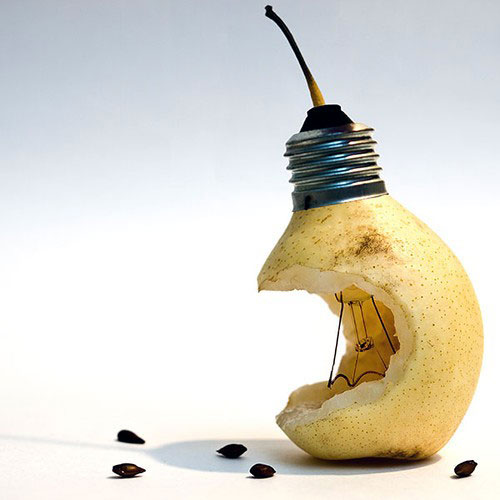A lot of German words are really ugly. Take something like, oh, Arbeitsunfähigkeitsbescheinigung - that's a doctor's note for all of you Anglos - or Telefonanrufbeantworter - at least tell me you guessed that had something to do with an answering machine. These are the type of words, ominously multisyllabic and menacingly glotal, that do at least a third of the work of carving out Germans as the bad guys in WWII blockbusters. (Those other thirds are owed to John Williams and, uh, history.)
But the German language does have a softer, gentler side. Maybe not to hear it over the credits in Inglourious Basterds, but, when sit down and think about what some of those compound words break down to literally, you start to realize the Germans are really all warm and fuzzy on the inside.
Take das Schneebesen, for example, known in English as a whisk. If you translate it literally from German, a Schneebesen is a "snow broom." Isn't that the cutest thing? Can't you imagine whipping up a big pillowy bowl of egg whites with your snow broom? Or rather, can't you imagine little German garden gnomes whipping up a big pillow of egg whites with their snow brooms? Maybe with the Smurfs in tow?
Or, another example on what I think of the fairytale club of German vocabulary: die Gluhbirne. This is a lightbulb, only in German, it's a "glow-pear." Not to be confused with the Hasbro children's toy Glo-worm, although let me warn you that once you start using the Glo-friends as a mnemonic device, it is almost impossible to erase the association. Come to think of it, "lightbulb" is kind of sweet too - like a magical tulip or something, an idea that seems more Dutch than English, actually, given they had made the error of actually believing in magical tulips in the past.
But don't bother trying to explore these sweet Brothers-Grimm-isms with German speakers. They will stare at you blankly, and then ask you once again why you can say "Merry Christmas" and "Happy Easter" but not vice versa. Leave it to the Germans to find the truly important questions.
image via foundshit.com

Schon, you have made this picture?
ReplyDeleteExarte | klassische Weihnachtskugeln glasweihnachtsschmuck.de